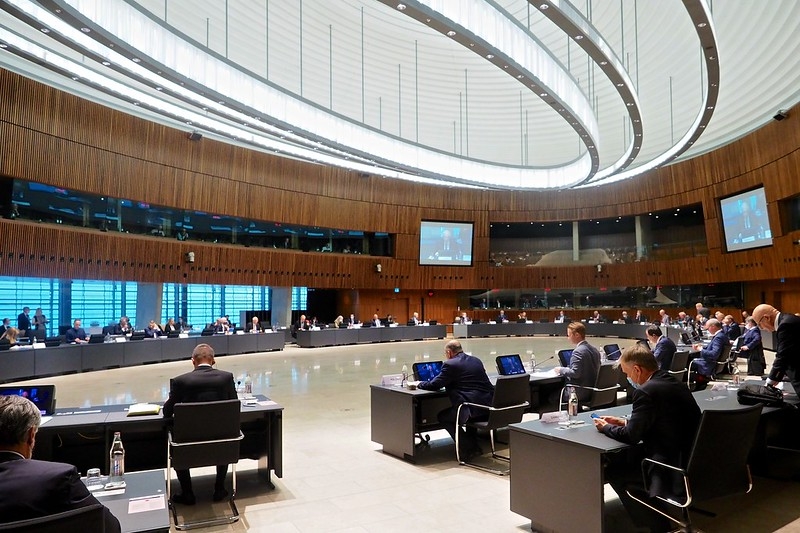On 12 October 2020, the Latvian Minister of Foreign Affairs, Edgars Rinkēvičs, took part in the meeting of the European Union (EU) Foreign Affairs Council in Luxembourg. EU Member State Foreign Ministers discussed developments in Belarus and the security situation in Nagorno-Karabakh. The minsters’ agenda also included the relations between the EU and Russia, including a possible EU response to human rights violations in Russia in relation to the poisoning of Alexei Navalny. The foreign ministers shared views, as well, on the Belgrade-Pristina dialogue and drew attention to the Latin America and the Caribbean region.
In discussions on political processes and developments in Belarus, EU Foreign Ministers highlighted the violence and brutality during recent events in Minsk and mapped further directions in EU-Belarus relations and the EU’s financial support for the Belarusian civil society.
The list of the EU’s restrictive measures against Belarusian officials should be kept open, said the Latvian Foreign Minister. Alexander Lukashenko has lost legitimacy. The EU should make every effort to achieve dialogue between the authorities and the people. However, further restrictive measures and the narrowing of the EU-Belarus dialogue must not have a negative impact on Belarusian society, Edgars Rinkēvičs noted.
In solidarity with Poland and Lithuania, Latvia has recalled its Ambassador from Belarus for consultations.
Concerning serious violations of human rights that took place in Russia with regard to the attempt on Alexei Navalny’s life, EU Foreign Ministers were united in condemning Russia’s actions. The ministers passed a political decision on the inclusion in the sanctions list of persons sharing responsibility for this violation of international law.
In a discussion on the security situation in Nagorno-Karabakh, there was a general agreement between EU Foreign Ministers that the Nagorno-Karabakh conflict should be resolved by peaceful means, by involving the OSCE Minsk Group in a dialogue on the basis of generally recognised principles of international law.
The Foreign Affairs Council also heard a report of the EU Special Representative for the Western Balkans, Miroslav Lajčák, on the course of the Belgrade-Pristina (Kosovo-Serbia) talks and they underlined the responsibility of both parties in achieving a legally binding agreement. Foreign Minister Rinkēvičs highlighted the importance of this dialogue and its role for the long-term stability in the Western Balkans region.





